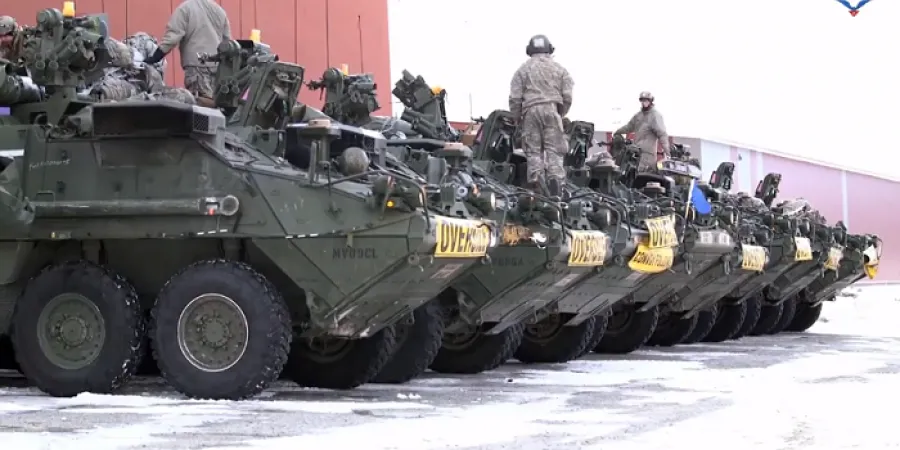US Army Rejects Iron Curtain APS for Stryker
The Army has decided not to continue to qualify Artis LLC’s Iron Curtain active protection system for the Stryker combat vehicle. Two Israeli systems remain in the race: Rafael’s Trophy and IMI Systems’ Iron Fist
Ami Rojkes Dombe
| 26/08/2018
The US Army announced it has rejected Artis LLC’s Iron Curtain active protection system but will test alternatives in November on its Stryker armored vehicle. According to Col. Glenn Dean, who oversees Army vehicle self-defense systems, Iron Curtain “generally was able to hit its targets,” but it lacked the “maturity” to function reliably under tough field conditions.
The Army’s Expedited Active Protection System (ExAPS) effort is looking to buy off-the-shelf technology that can be fielded as fast as possible to confront the Russian threat. Among the alternatives are two Israeli systems – Rafael’s Trophy and IMI Systems’ Iron Fist.
The service will also launch three new programs to develop additional types of protection for its armored vehicles, all of which should be fielded by 2022. The first is advanced reactive armor tiles that layer on top of a vehicle’s hull armor and explode outward when hit to neutralize impacting warheads. The second is a laser early warning system to warn a vehicle crew when they’ve been marked by a laser rangefinder or laser beam guidance used by anti-tank weapons. The third – a signature management effort to reduce the heat, noise, electromagnetic energy, and radar signature that armored vehicles create so they’ll be harder to detect and target in the first place.
Of the three, signature management “is the most mature,” said Col. Dean. “Frankly, we could be deploying that next year if we were funded, (but) right now that isn’t in the 2019 budget.”
[Source: Breaking Defense]
The Army has decided not to continue to qualify Artis LLC’s Iron Curtain active protection system for the Stryker combat vehicle. Two Israeli systems remain in the race: Rafael’s Trophy and IMI Systems’ Iron Fist
The US Army announced it has rejected Artis LLC’s Iron Curtain active protection system but will test alternatives in November on its Stryker armored vehicle. According to Col. Glenn Dean, who oversees Army vehicle self-defense systems, Iron Curtain “generally was able to hit its targets,” but it lacked the “maturity” to function reliably under tough field conditions.
The Army’s Expedited Active Protection System (ExAPS) effort is looking to buy off-the-shelf technology that can be fielded as fast as possible to confront the Russian threat. Among the alternatives are two Israeli systems – Rafael’s Trophy and IMI Systems’ Iron Fist.
The service will also launch three new programs to develop additional types of protection for its armored vehicles, all of which should be fielded by 2022. The first is advanced reactive armor tiles that layer on top of a vehicle’s hull armor and explode outward when hit to neutralize impacting warheads. The second is a laser early warning system to warn a vehicle crew when they’ve been marked by a laser rangefinder or laser beam guidance used by anti-tank weapons. The third – a signature management effort to reduce the heat, noise, electromagnetic energy, and radar signature that armored vehicles create so they’ll be harder to detect and target in the first place.
Of the three, signature management “is the most mature,” said Col. Dean. “Frankly, we could be deploying that next year if we were funded, (but) right now that isn’t in the 2019 budget.”
[Source: Breaking Defense]



